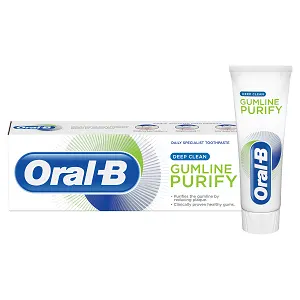
Patients often confuse plaque and tartar and how they are related to each other. Read on to find out more about plaque and tartar removal and control.
Plaque is a sticky, colourless deposit of bacteria that is constantly forming on the tooth surface. The build-up of plaque can trap stains on the teeth, and it is also the primary factor in gum problems.
Fighting plaque build-up on teeth is a life-long part of good oral care. Plaque begins forming on teeth 4 to 12 hours after brushing, which is why it is so important to brush at least twice a day and floss daily as a part of oral care.
See Which Brush Is The Best For You
How to get rid of plaque
To prevent the build-up of plaque on teeth, be sure to floss once a day and brush your teeth at least twice a day with a fluoride, anti-plaque toothpaste.
Use a quality toothbrush with criss-cross bristles, which helps remove up to 90% of plaque and remember to replace it every three months or as soon as the bristles look worn. Adding a mouth rinse that contains anti-bacterial agent (such as CPC) to your routine provides protection against plaque build-up on teeth and gum problems. Visit your dentist regularly for oral exams and teeth cleanings, during which he or she will scrape away any accumulated and hardened plaque (otherwise known as tartar) with a special instrument.
Understanding calculus
Calcium and phosphate bind to form crystals on the teeth. These calcium phosphate crystals eventually harden within plaque, forming calculus, i.e. tartar build-up on teeth. Certain types of chemicals called pyrophosphates help to decrease calculus build-up by stopping the growth of crystals on the tooth surface and preventing new crystals from forming.
You can help to prevent the build-up of tartar by:
Having your teeth cleaned professionally in the process of plaque and tartar removal every 6 months, or more frequently as recommended by your dentist or hygienist. Brushing teeth with a toothpaste that contains pyrophosphate, which adheres to the tooth surface and inhibits the formation or growth of calculus crystals. Brushing with Oral-B Pro-Expert toothpastes, which contain sodium hexametaphosphate, a pyrophosphate specially formulated to not only inhibit calculus, but also loosen and break the bonds of extrinsic stains on teeth and acts as a protective barrier to prevent future stains.
Related Articles
Sign Up
for expert advice and exclusive offers






